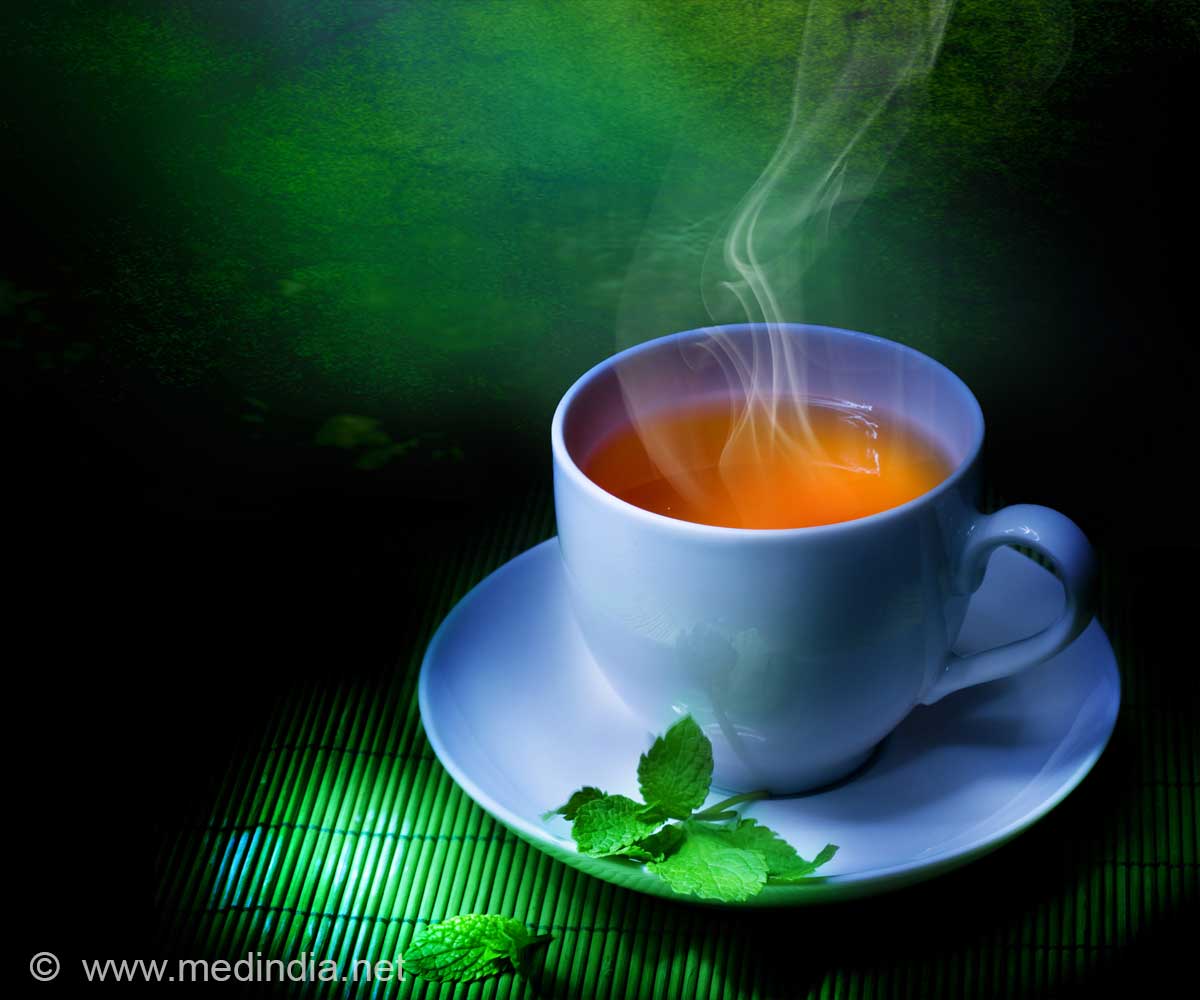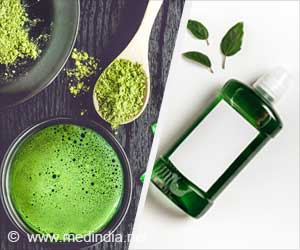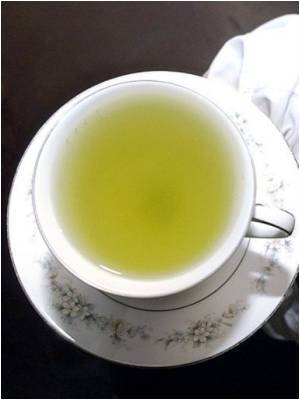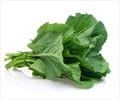Green tea is a popular drink rich in antioxidants known for its health benefits, light caffeine content, and rich antioxidant properties.

- Green tea has 29 mg of caffeine per 8-oz cup, less than coffee
- Contains antioxidants that benefit brain, heart, and skin health
- Brewing time and temperature affect caffeine content
Green tea offers a mild energy boost with fewer jitters! #greentea #healthbenefits #medindia’
Does Green Tea Contain Caffeine?
Yes, green tea does contain caffeine but it’s generally a much smaller amount than coffee. This however differs with the kind of green tea and the style used in preparation of the tea.- Average caffeine content: While an 8 ounce cup of green tea contains averagely 29 milligrams of caffeine (1✔ ✔Trusted Source
Food Data Central Food Search
Go to source). - Decaffeinated options: There is, however, green tea which is prepared in a decaffeinated form which cuts down further on caffeine.
Green tea has fewer amounts of caffeine than coffee and other beverages that contain caffeine; hence, it can fit well in a preference of individuals with sensitive stomachs.
- Green tea: 29 mg per 8-ounce cup
- Black tea: 47 mg per 8-ounce cup
- Coffee: 133 mg per 8-ounce cup
- Espresso: 320 mg per serving
- Soft drinks: 23-27 mg per serving
- Energy drinks: 72-80 mg per serving
Effects of Caffeine on Alertness and Mood
Caffeine acts on the brain by inhibiting a neurotransmitter called adenosine which makes a person feel sleepy. The caffeine level in green tea is not as high as that found in coffee but it has the potential to improve mood, increase alertness as well as concentration (2✔ ✔Trusted Source
A review of caffeine's effects on cognitive, physical and occupational performance
Go to source).
Different types of green tea and their caffeine level
Green tea comes in very many forms, each offering varied caffeine concentrations:
- Loose leaf or bagged tea: Made at various times and at different temperatures which changes the amount of caffeine present in it.
- Matcha: Because the matcha green tea is prepared by mixing it with hot water into a fine powder, it has a higher caffeine content than ordinary green tea.
- Instant powder, capsules, and bottled tea: Sometimes they contain caffeine but the extent depends on the processing that the coffee undergoes.
Factors Affecting Caffeine Levels in Green Tea
- Infusion time: The longer the tea is brewed, the higher is its caffeine content (3✔ ✔Trusted Source
Effects of different steeping methods and storage on caffeine, catechins and gallic acid in bag tea infusions
Go to source). - Water temperature: Hot water seeping to the leaves takes more caffeine as compared to cooler water.
- Leaf age: Pure and natural tea from older tea leaves contain less caffeine as compared to the fresh tea leaves.
Potential Side Effects of Caffeine in Green Tea
While green tea is generally safe, excessive caffeine intake can lead to side effects (4✔ ✔Trusted Source
Dietary sources, health benefits, and risks of caffeine
Go to source), especially for caffeine-sensitive individuals: The general population is advised to consume no more than 400 mg of caffeine per day while the sensitive people should take no more than 200 mg of caffeine.
Health Benefits of Green Tea
Green tea has been associated with many health benefits which have been attributed to the antioxidant and anti- inflammatory effects (5✔ ✔Trusted SourceGreen tea, coffee linked to lower death risk after stroke, heart attack
Go to source). Key health advantages include:
- Brain health
- Weight loss
- Chronic disease prevention
- Heart health
Benefits of Decaf Green Tea
Decaffeinated green tea retains most of its antioxidants and health benefits, making it a suitable option for people who wish to avoid caffeine while still enjoying green tea’s potential health perks, such as:- Reduced risk of chronic diseases: Such as heart disease and
Alzheimer’s . - Skin health: Vitamin C may lessen inflammation; flavonoids may also work to prevent skin damage caused by irritation (6✔ ✔Trusted Source
Applications of Tea (Camellia sinensis) and Its Active Constituents in Cosmetics
Go to source).
References:
- Food Data Central Food Search - (https://fdc.nal.usda.gov/food-search?query=&type=Foundation)
- A review of caffeine’s effects on cognitive, physical and occupational performance - (https://www.sciencedirect.com/science/article/pii/S0149763416300690?via%3Dihub)
- Effects of different steeping methods and storage on caffeine, catechins and gallic acid in bag tea infusions - (https://www.sciencedirect.com/science/article/abs/pii/S0021967306022527?via%3Dihub)
- Dietary sources, health benefits, and risks of caffeine - (https://www.tandfonline.com/doi/full/10.1080/10408398.2022.2074362)
- Green tea, coffee linked to lower death risk after stroke, heart attack - (https://www.heart.org/en/news/2021/02/04/green-tea-coffee-linked-to-lower-death-risk-after-stroke-heart-attack)
- Applications of Tea (Camellia sinensis) and Its Active Constituents in Cosmetics - (https://www.mdpi.com/1420-3049/24/23/4277)
Source-Medindia














